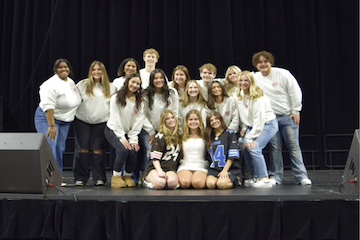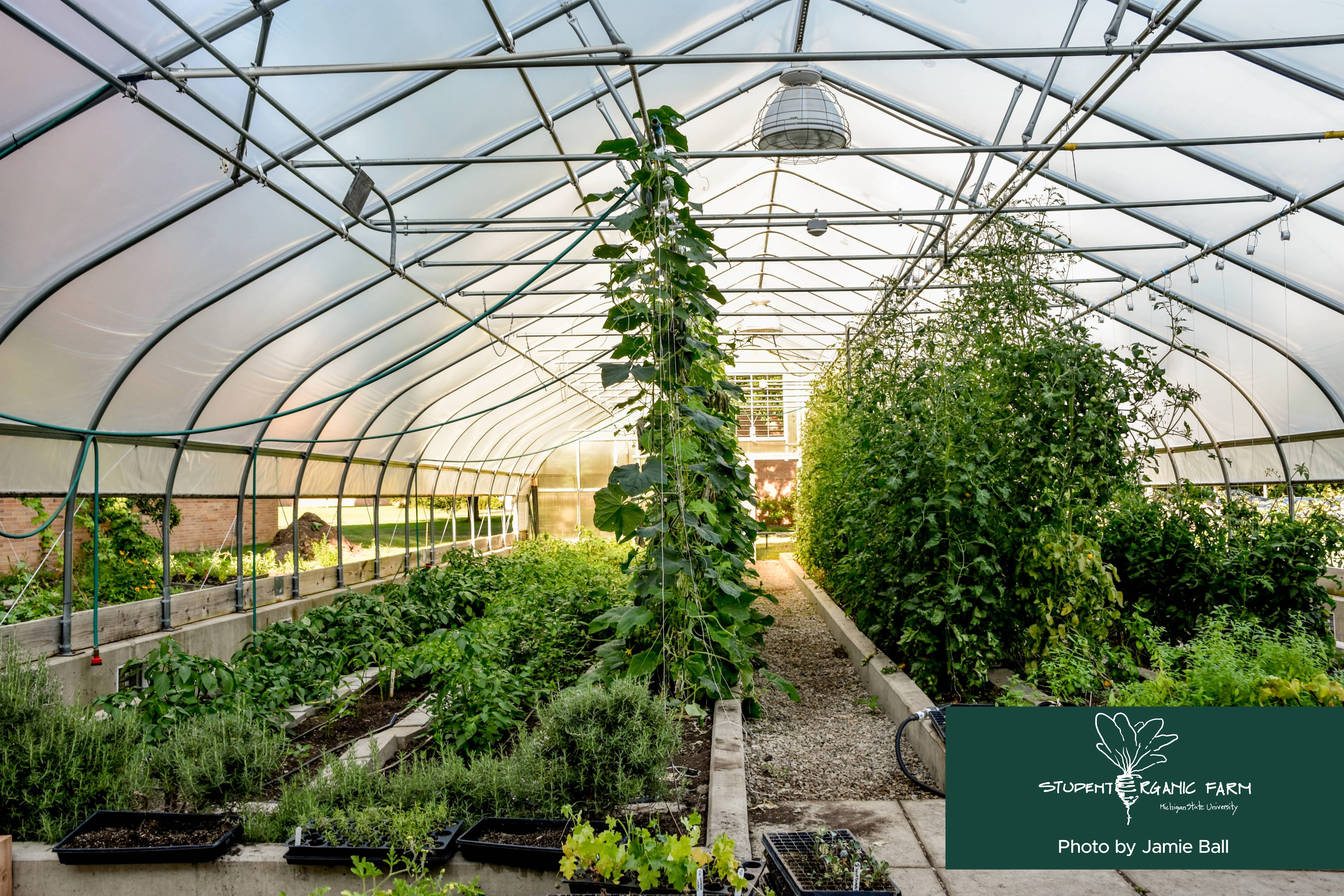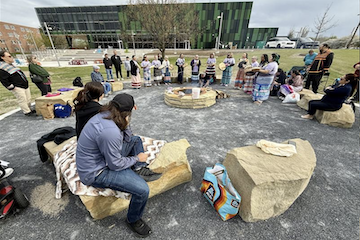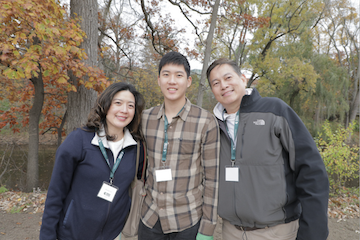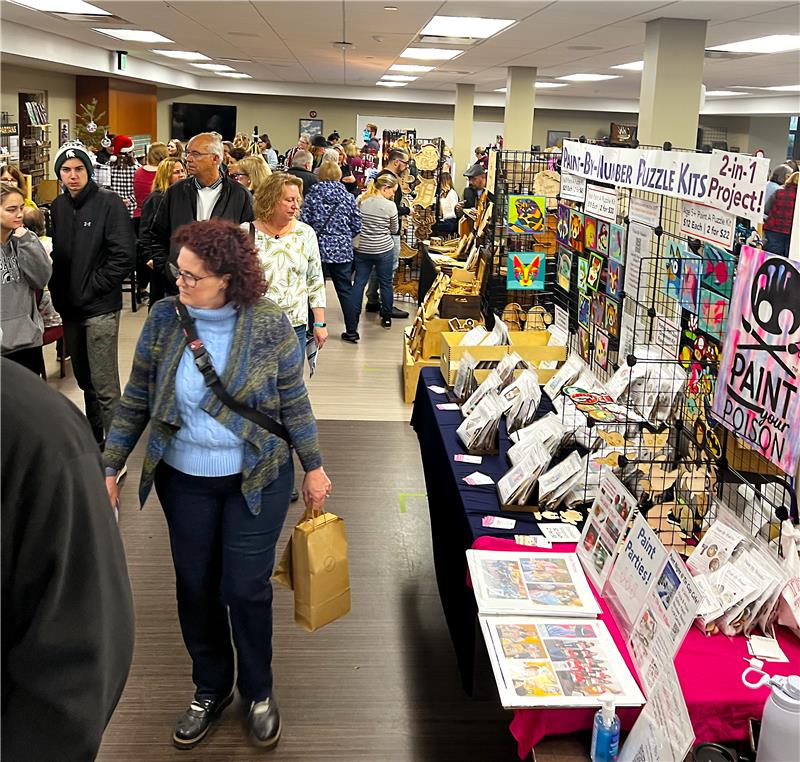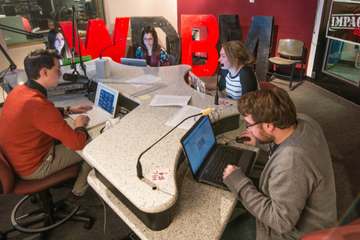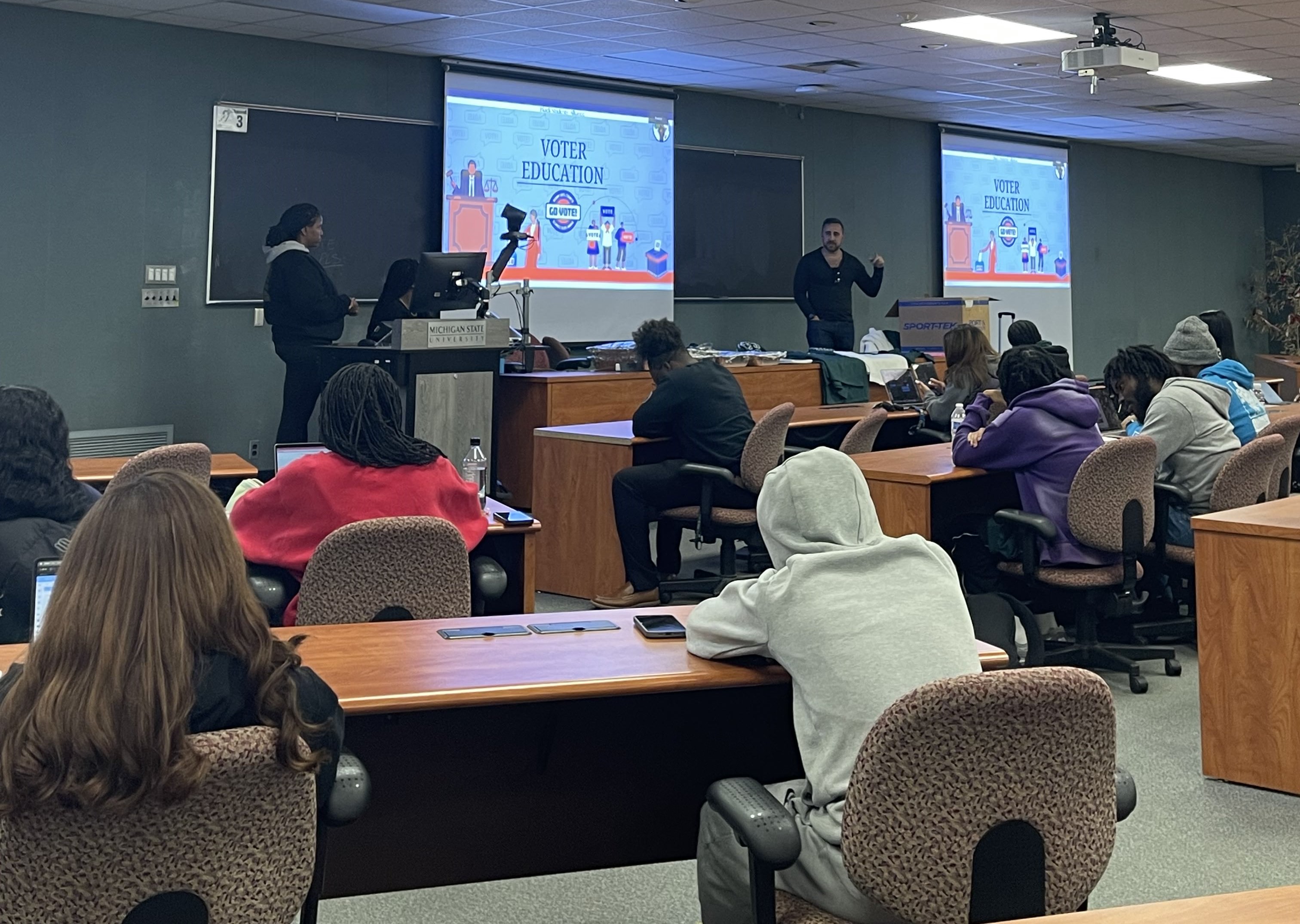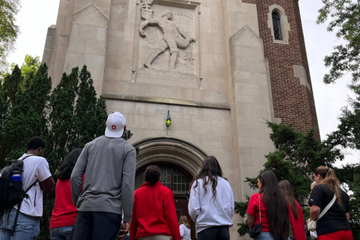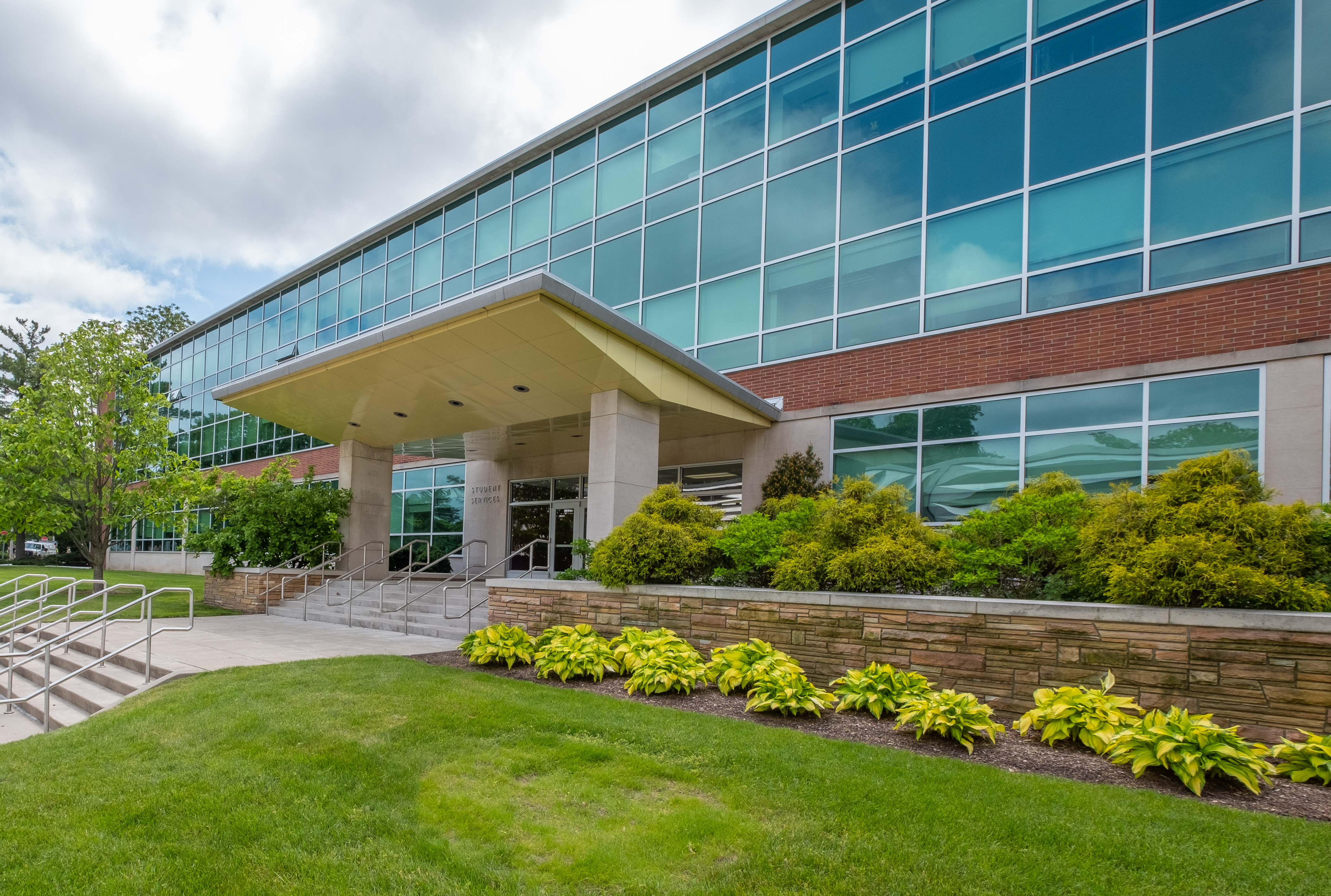The generosity of one can touch the hearts of many. Fueled by… Continue reading
Health and Wellness
- Breslin Student Events Center
The Jack Breslin Student Events Center, one of the premier facilities in the country, is host to more than 250 events annually and serves as home to the Michigan State men's and women's basketball programs. A multipurpose facility for MSU students and the greater MSU community, the Breslin Center sponsors major educational and entertainment events every year, including MSU and local high school student commencements, concerts, trade shows, conventions, celebrations, banquets and Michigan High School Athletic Association (MHSAA) boy’s state basketball championships.
- Care and Intervention Team
The Care and Intervention Team within the Office of Student Support & Accountability provides advocacy, guidance, and resources to support MSU community members facing challenges. Utilizing a collaborative and proactive approach, the team is committed to identifying, preventing, assessing, intervening, and reducing threats to the safety and well-being of the MSU community.
- Forest Akers Golf Courses
Forest Akers is located on the campus of Michigan State University and the home course for Big Ten men's and women's golf teams. Two golf pro shops (Spartan Spirit Shop) with the best quality MSU merchandise available.
- Mid-Michigan's premier practice facility
- 20-acre practice area opened in 1997
- Rated as one of the Top 100/50 public ranges in America since 1997
- Open to the public with memberships
- Three-acre bentgrass practice tee, two separate teaching tees, practice bunkers, target greens
- 18 heated and covered hitting stations open year-round
- 20,000 square-foot putting green
- PGA professionally-trained instructors
- MSU Student Food Bank
The MSU Student Food Bank serves MSU students experiencing food insecurity by providing free food and related items. In the course of one year, the MSU Student Food Bank serves over 6,000 students, many with families, and distributes over 110,000 pounds of food.
- MSU Tennis Center
The MSU Tennis Center is open to the public and the Michigan State University community. The center is home to the MSU Men's tennis team and Women's tennis team and serves as a teaching center for the Department of Kinesiology. The Tennis Center houses eight indoor courts with permanent seating for 1,200.
We offer a wide range of classes, leagues, permanent court time and has travel teams for all ages and skill levels. The center is open to the public so there is no initiation fee or monthly dues. We are happy to offer a unique "pay as you play" opportunity. The onsite Spartan Spirit Shop is your only place to find the latest and greatest in MSU tennis apparel as well as all your equipment needs.
- Recreational Sports and Fitness Services
Provides safe, supportive, and active environments that are responsive to the MSU community’s diverse fitness needs and engages the university community in healthy lifestyles through sport, fitness, and recreational opportunities. Includes club and intramural sports.
- Resource Center for Persons with Disabilities
The Resource Center for Persons with Disabilities (RCPD) was created in the 1970s as MSU's response for equal access to a university education for all students. Over the years, the foundational services for students with mobility and visual disabilities expanded to include services for students who were deaf or hard of hearing, those with learning disabilities, brain injuries, psychiatric, and various chronic health conditions. MSU Resource Center for Persons with Disabilities (RCPD) is here for you, Spartans!
- Student Health Services
Olin Health Center is the primary Student Health Services location. Student Health Services offers primary care, allergy/immunizations, sports medicine, laboratory and physical therapy services, among others. Don't let illness or injury impact your academics or life on campus.
Jobs and Scholarships
- Career Services Network
Assists students in all stages of professional development, from exploring career options and choosing a major to internship experience and conducting a job search. Handshake Career Development offers invaluable help to students looking for an internship or full-time job after graduation that fits their interests, skills, values and personality.
- Scholarships
Many scholarships are affiliated with Student Life & Engagement. Please visit the link below to read more about the donor and the application criteria and process. The applications are scheduled to become active on February 10, 2025. The deadline to apply for most of these scholarships is 11:55 p.m. on Monday, March 10, 2025. HOWEVER, please make sure you read details of each scholarship for differences in deadline, requirements and submission processes.
- Student Jobs
From culinary platform assistants to building facilities workers, we have a job for you! Our division employs the largest number of students on campus. Some areas that hire most frequently are Culinary Services (Eat at State), Residence Education and Housing Services (Live On) and Auxiliary Sports Group.
- The Career Closet
Need professional attire for an upcoming career fair, interview, or other event? The Career Closet has you covered. We offer free professional attire rental to help you impress at interviews and career fairs. Stop in any day of the week and browse our wide selection of items. Our inventory includes business casual and professional pants, shirts, jackets, dresses, and more! The friendly Career Closet staff will be happy to help you find the right item.
Student Involvement
- Center for Community Engaged Learning
Preparing students for lifelong civic and social responsibility.
- Impact 89FM | WDBM-FM
One of the nation’s largest student-run media outlets, consistently ranked among the top in Michigan and across the country. The Impact is proud to have compiled an unprecedented 15 College Radio Station of the Year distinctions from the Michigan Association of Broadcasters and Broadcast Music, Inc. Nationally, the Impact has also been nominated and awarded numerous times from the likes of CMJ, College Broadcasters, Inc. and mtvU as a part of their national competitions.
- Involve@State
Discover unique opportunities at Michigan State University by exploring Involve at State. Find registered student organizations to join, discover events happening on campus, and showcase your involvement.
- MSUvote
MSUvote is a non-partisan campus committee whose mission it is to increase the number of registered student voters, to inform and educate students on candidates and issues, and to bolster student participation on Election Day.
- Office of Spartan Experiences
The 700-plus registered student organizations offer fun and friendly social and educational experiences. Creates an integrated and coherent leadership devolpment experience that enhances students’ knowledge and academic experiences. Fall Welcome features informative, engaging and fun events to promote a better understanding of MSU.
- Office of Student Support and Accountability
The Office of Student Support and Accountability (OSSA) centers equity, integrity, and learning in processes that emphasize the importance of working with students and the community. Our work includes student and organizational conduct, academic integrity, care and intervention, conflict resolution, medical amnesty, and medical leave and return.
- Student Government
The Associated Students of Michigan State University (ASMSU) is the undergraduate student government organization and the Council of Graduate Students (COGS) is the elected body representing graduate students at Michigan State University.
- University Activities Board
UAB is open to all undergraduate students at MSU and membership is free and open all year long. New members are welcome and encouraged weekly!
Diversity and Inclusion
- Center for Veteran and Military Affiliated Students
The Center for Veteran and Military Affiliated Students is dedicated to promoting the educational, career, and personal advancement of service members, veterans, and their families at Michigan State University.
- Fraternity and Sorority Life
Offers a rewarding fraternity and sorority experience that merges almost every segment of the campus community into one cohesive program, promoting self-governance, leadership development, academic achievement, community service, and friendship.
- MOSAIC Center for Education and Outreach
MOSAIC Center for Education and Outreach will integrate three key units: Women and Gender Equity (WAGE), Global Justice Education and Outreach (GJEO), and Religious, Spiritual and Secular Identities (RSSI) under the Office of Education and Outreach, which will be led by Dr. Charles “charlie” Liu.
- Multicultural Center
Advocacy efforts for a free-standing multicultural center on campus date back several decades. The university’s first multicultural center opened in 1999 in the basement of the MSU Union and moved to the second floor in 2013. Since then, student leaders have continued to advocate for a standalone building on campus.
- Office of Multicultural Enrichment and Advocacy
The Multicultural Center (MCC) construction is set to be completed this winter, and the Michigan State University (MSU) Office of Cultural and Academic Transitions (OCAT) will officially take the reins in managing operations of the historic, 34,000-square-foot building. The office will not only take on a new set of responsibilities upon moving in at the corners of Shaw and Farm Lanes but will be doing so under a new name and expanded focus. Transitioning into the Office of Multicultural Enrichment and Advocacy (OMEA), the move to the first-of-its kind facility allows the office to broaden the scope of services and thus, its impact on students.
- Student Parent and Caregivers Resource Center
Our mission is to provide support, resources, and campus and community connections for all MSU student parents through graduation and beyond. We work by helping non-traditional students achieve their goals, creating two-generation success, and establishing long-term connections with the University.
- The Gender and Sexuality Campus Center
The Gender and Sexuality Campus Center is a student-centered campus resource that works to celebrate, affirm, and empower LGBTQIA2S+ members of the Michigan State University community. Through education, engagement, advocacy, and student support, we work to create an inclusive campus culture for people of all genders and sexual identities. We provide intersectional educational and social programming and collaborate with student leaders and campus partners to build community and increase a sense of belonging.
- Women and Gender Equity
Women and Gender Equity (WAGE), formerly Women*s Student Services, was established in July 2019. The unit provides a variety of student programs and services, including programs and workshops that are focused on leadership and mentoring, activism, and campus engagement. WAGE can put Spartans in touch with specialized support programs and community resources, both on- and off-campus.
About Us
- Health and Safety
To ensure the highest levels of safety, security and regulatory compliance, the Health and Safety Office serves as a liaison with university partners to manage compliance and enterprise security risk management programs providing guests and associates with a healthy and safe environment in which to live and work.
- Leadership Team
Working together, we support the many diverse, unique identities of all our Spartans.
- Our Purpose
Working together, we support the many diverse, unique identities of all our Spartans. MSU students spend an estimated 80% of their time at MSU growing outside the classroom. We encourage Spartans to make the most of that time by exploring the various resources – from job opportunities to university events – offered on campus.
- Spartan Family Connections
Information for parents and family members an opportunity to play an active, supporting role in the education of their student, offers helpful information, and fosters communication among families, students, and MSU.
- Strategic Plan
The SLE 2030 Strategic Plan articulates a future for the Division of Student Life & Engagement, shaped with the input of many voices through an inclusive process. It focuses on three strategic imperatives, six divisional priorities and 13 department and unit plans that will guide our collective efforts moving forward.
- Sustainability
The Division of Student Life & Engagement supports the sustainability mission of Michigan State University (MSU) and is focused on increasing awareness and driving behavior change with the ultimate goals of reducing greenhouse emissions, reducing energy consumption and conserving water through innovative and balanced strategies that support stewardship, fiscal responsibility and partnership.


